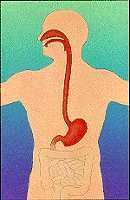 Peptic Ulcer Disease (PUD) is a prevalent and often misunderstood condition that affects millions of individuals worldwide. In this in-depth exploration, we will unravel the complexities of peptic ulcer disease, delving into its causes, symptoms, diagnosis, treatment options, and lifestyle modifications that can aid in its management.
Peptic Ulcer Disease (PUD) is a prevalent and often misunderstood condition that affects millions of individuals worldwide. In this in-depth exploration, we will unravel the complexities of peptic ulcer disease, delving into its causes, symptoms, diagnosis, treatment options, and lifestyle modifications that can aid in its management.
Unmasking Peptic Ulcer Disease
The Basics of Peptic Ulcers
Peptic ulcers are open sores that develop on the inner lining of the stomach, upper small intestine, or esophagus. These ulcers result from the erosion of the protective mucosal lining, allowing stomach acid to create painful lesions.
Types of Peptic Ulcers
The two primary types of peptic ulcers are gastric ulcers, occurring in the stomach lining, and duodenal ulcers, found in the upper part of the small intestine. While both share common characteristics, their locations can lead to distinct symptoms and management strategies.
Causes and Risk Factors
Helicobacter pylori Infection
The majority of peptic ulcers are linked to Helicobacter pylori (H. pylori) infection. This bacterium weakens the protective mucous layer, making the stomach more susceptible to acid-induced damage.
Nonsteroidal Anti-Inflammatory Drugs (NSAIDs)
Regular use of NSAIDs, such as aspirin and ibuprofen, can contribute to the development of peptic ulcers. These medications inhibit the production of stomach mucus, leaving the lining vulnerable to erosion.
Lifestyle Factors
Smoking and excessive alcohol consumption are recognized risk factors for peptic ulcer disease. Both habits can exacerbate stomach acid production and hinder the healing of existing ulcers.
Recognizing the Signs and Symptoms
Burning Sensation
A burning sensation or pain in the stomach, especially between meals and in the early morning, is a hallmark symptom of peptic ulcers. The pain can be intense and may be temporarily relieved by eating or taking antacids.
Nausea and Vomiting
Some individuals with peptic ulcers may experience nausea and vomiting, particularly if the ulcer is affecting the stomach. These symptoms can lead to unintended weight loss and nutritional deficiencies.
Gastrointestinal Bleeding
In severe cases, peptic ulcers can lead to gastrointestinal bleeding, resulting in dark, tarry stools or vomit that resembles coffee grounds. This is a medical emergency requiring immediate attention.
Diagnosing Peptic Ulcer Disease
Endoscopy
Endoscopy is a common diagnostic tool for peptic ulcers. A thin, flexible tube with a camera is inserted through the mouth to visualize the stomach and small intestine, allowing for direct examination of ulcers.
H. pylori Testing
Testing for H. pylori infection may involve blood tests, breath tests, or stool tests. Identifying and treating this infection is crucial for successful ulcer management.
Treatment Options
Antibiotics for H. pylori
If H. pylori infection is present, a course of antibiotics is typically prescribed. Eradicating the bacteria helps in ulcer healing and reduces the risk of recurrence.
Proton Pump Inhibitors (PPIs)
PPIs are medications that reduce stomach acid production, providing relief and promoting ulcer healing. These are often prescribed for a specified duration to manage symptoms effectively.
Antacids and H2 Blockers
Antacids neutralize stomach acid, offering immediate relief, while H2 blockers reduce acid production. Both can be used as part of a comprehensive treatment plan for peptic ulcer disease.
Lifestyle Modifications
Dietary Changes
Avoiding spicy foods, caffeine, and acidic substances can help minimize irritation to the stomach lining. A balanced and nutritious diet plays a crucial role in supporting overall digestive health.
Quitting Smoking and Limiting Alcohol
Quitting smoking and moderating alcohol intake are essential steps in preventing further damage to the stomach lining and promoting the healing of existing ulcers.
Complications and Long-Term Outlook
Complications of Untreated Ulcers
Untreated peptic ulcers can lead to complications such as perforation, bleeding, and obstruction. Early diagnosis and appropriate management are vital in preventing these serious outcomes.
Long-Term Management
While many individuals can achieve complete healing with appropriate treatment, some may require long-term management to control symptoms and prevent recurrence. Regular follow-ups with healthcare providers are essential for monitoring progress.
Conclusion
In conclusion, peptic ulcer disease is a multifaceted condition that demands attention and understanding. By recognizing its causes, being vigilant for symptoms, and adopting a holistic approach to treatment and lifestyle modifications, individuals can effectively manage peptic ulcers and enhance their overall well-being. Seeking timely medical attention, embracing a healthy lifestyle, and staying informed empower individuals to navigate the challenges of peptic ulcer disease and thrive despite its complexities.
Disclaimer:
The information on this website is provided for educational and information purposes only and is not medical advice. Always consult with a licensed medical provider and follow their recommendations regardless of what you read on this website. If you think you are having a medical emergency, dial 911 or go to the nearest emergency room. Links to other third-party websites are provided for your convenience only. If you decide to access any of the third-party websites, you do so entirely at your own risk and subject to the terms of use for those websites. Neither Arnon Lambroza, M.D., P.C., nor any contributor to this website, makes any representation, express or implied, regarding the information provided on this website or any information you may access on a third-party website using a link. Use of this website does not establish a doctor-patient relationship. If you would like to request an appointment with a health care provider, please call our office at 212-517-7570.


